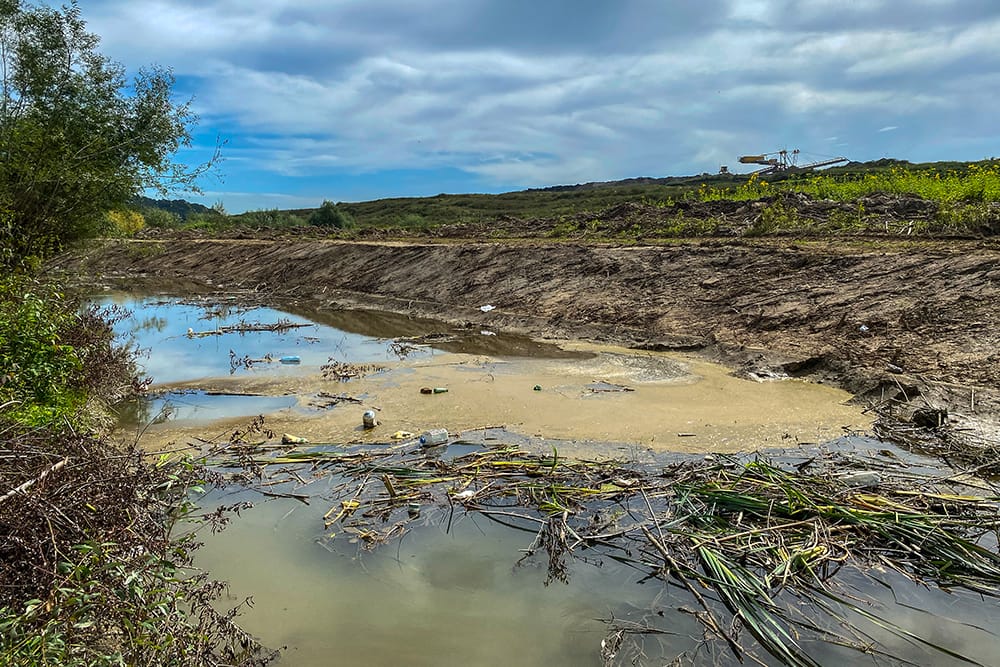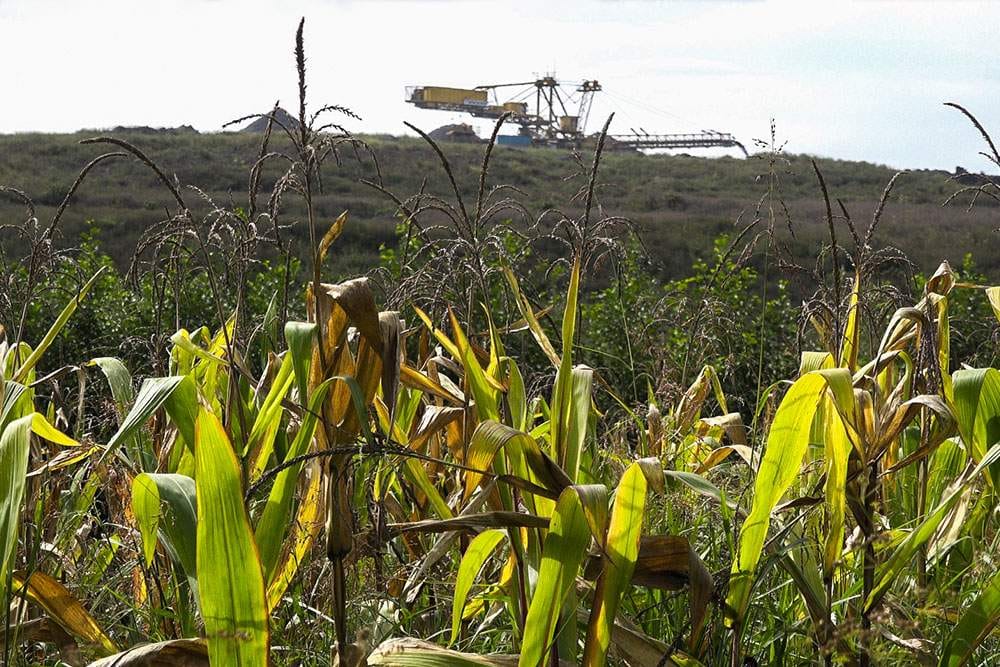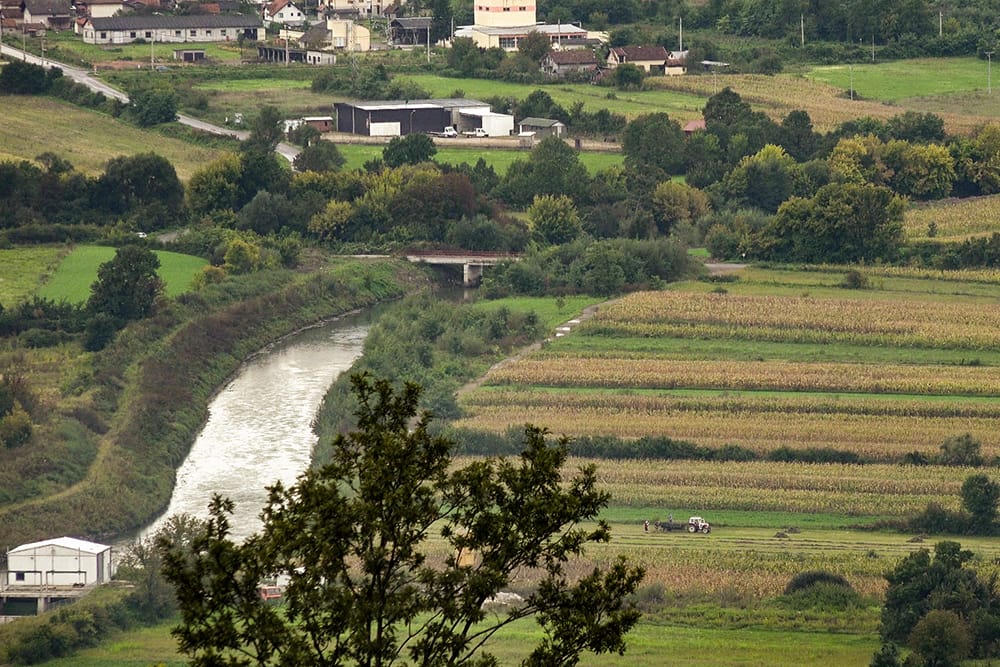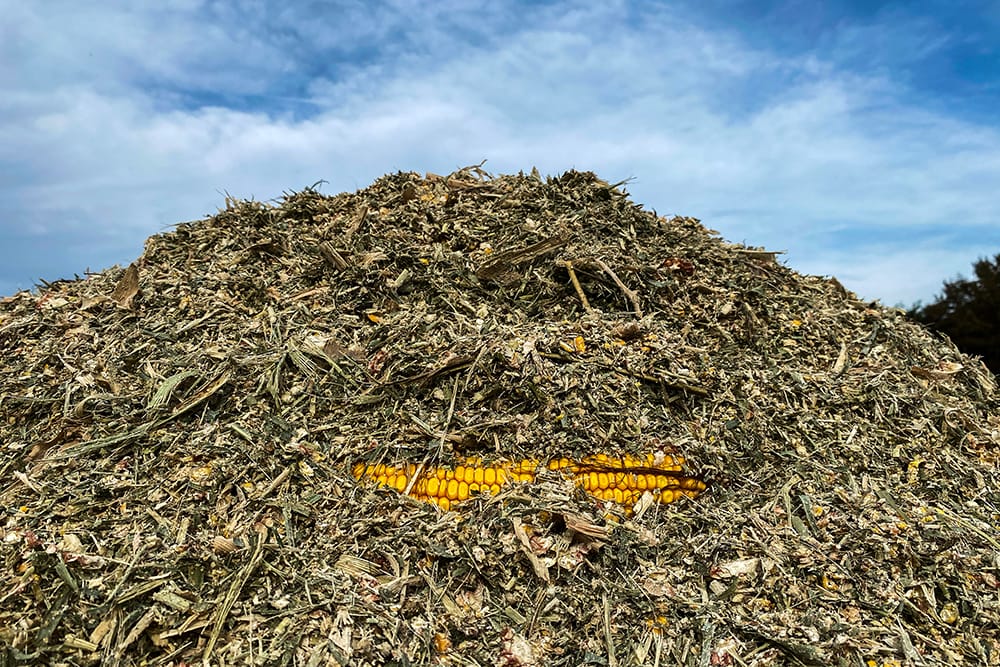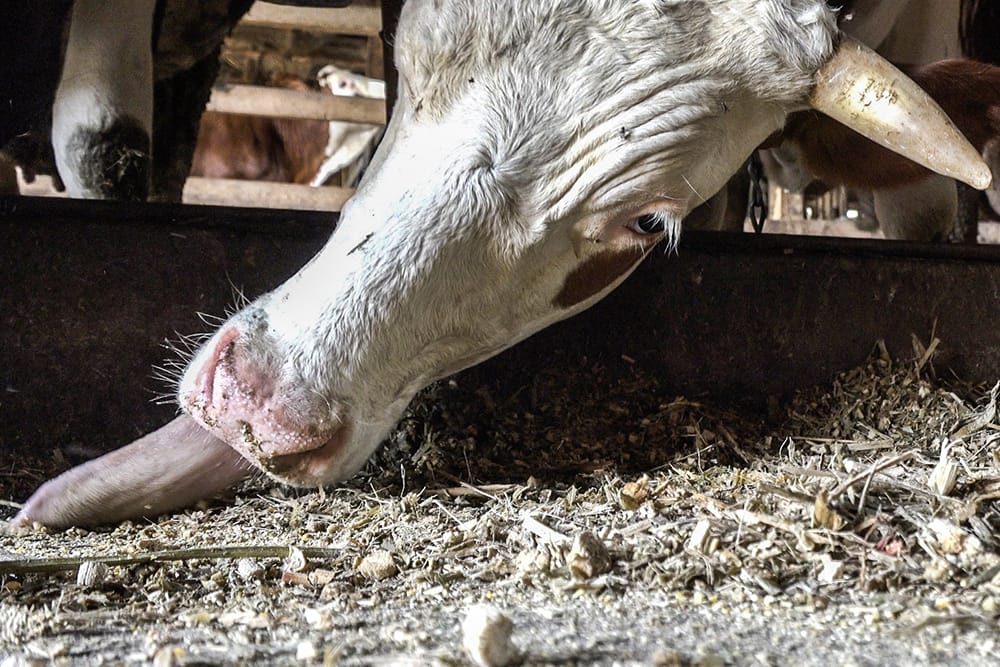A pungent and unpleasant smell evaporates from the greasy spots on the river Spreča. A rainbow sheen on the water surface under the sun makes it look like a fairy tale but as soon as the light goes out, the former beauty of the Tuzla region shows its true face, disfigured by the industrial poisons.
This is one of the most polluted rivers in Bosnia and Herzegovina because it has long been a dumping ground for municipal and industrial wastewater, which often spills out of an unworked river bed leaving its cancerous traces in the soil.
Excessive concentrations of mercury, arsenic, copper, lead, and polycyclic aromatic hydrocarbons (PAH) were reported from agricultural plots along the Spreča River in Lukavac, Gračanica, and Doboj Istok. All are dangerous to health.
“They keep saying it will be prevented, we will be compensated, the river Spreča will be tamed, there will be no more flooding, it will be cleaned and disinfected. A promise is a comfort to us. Never gonna happen”, says Ismet Kovačević from Miričina near Gračanica.
The locals know that they live off the poisoned soil and they point the finger at the Tuzla industry, but the institutions have not yet done anything to find and sanction those responsible. CIN discovered that instead, the institutions have been extending the deadlines for adequate wastewater treatment for years, thus preventing the inspection authorities to impose sanctions for excessive river pollution.

Spreča untamed
Retiree Ismet Kovačević recalls that as a young man, he drank the water from the river, bathed, and fished in it.
“Have them not discharge benzene and those chemicals into Spreča, and fish will appear in five or six months.”
This river used to have 40 species of fish but today there are only ten – those that can withstand the high concentration of poison in the water.
According to Avdul Adrović, a professor at the Faculty of Science and Mathematics in Tuzla, the fish stock has been decimated solely by pollution. He claims that in one part of Spreča, they could not find live fish to conduct a fish identification exercise, hence they were forced to work based on dead fish.
“All the fish had died and were there floating on and around the river. The stench was unbearable”, recalls Professor Adrović.
He says that despite this, people eat it: “I eat it too. After all, when you go to any restaurant here, you won’t get fish that came from I don’t know where, but the one that was caught here.”
In addition to wastewater, the river is also polluted by agriculture, mines, and illegal landfills. As a result, fishkills occur several times a year. The Sava River Basin Agency and the FBiH Institute for Agropedology have been finding PAHs, mercury, arsenic, nickel, and cadmium in the water and surrounding soil for a long time.
These are extremely dangerous, toxic, and carcinogenic substances and if not properly decontaminated, they remain in water and soil and can be transmitted to humans and animals through the consumption of fish and plants.
Since 2014, the institute has been drawing special attention to mercury and arsenic due to their influence on the nervous system and brain and the trigger skin, lung, kidney, lymph node, prostate, and liver cancers.
Four water inspectors in FBiH are responsible for controlling 10-15 thousand economic entities. Annually, they conduct about 720 inspections and issue penalties of up to half a million marks, but none for excessive surface water pollution.
“Inspectors are often frustrated because during the inspection they can undoubtedly establish the kind of water the polluter discharges, but they cannot do anything to prevent or sanction it”, says the FBiH Administration for Inspection Affairs (FUZIP).
The FBiH Water Act stipulates no penalty for excessive discharge of pollution into the river. Under the Regulation on conditions for the discharge of wastewater into the environment and public sewage systems, all new plants must align the quality of their wastewater with the prescribed values, but the compliance deadlines for existing plants have been postponed for more than ten years by constant amendments to the regulations.
In 2012, the FBiH Ministry of Environment and Tourism set a 5-year deadline for compliance, which was in 2015 prolonged to 2018, and after that to another 5 years. Under the 2020 amendments, a new compliance deadline was set to be December 19, 2023.
If it had not been for these postponements, the companies would have had to apply the EU directives, which would require huge financial resources. Construction of a wastewater treatment plant is an expensive and long process that requires the coordination of institutions and industry. Therefore, large companies argue that imposing imperative deadlines would render the industry to close or cut jobs, says the Inspectorate.
This argument has been guiding the decisions of the Ministry to extend the deadlines and thus avoid or prolong such scenarios.
Consequently, the old companies – which are also the biggest polluters, stayed out of the obligation to urgently install a new wastewater treatment system and comply with the set wastewater limit values.
“For example, GIKIL company evidently discharges wastewater with heavy metals but due to the inadequate legislative framework, the problem of excessive values, unfortunately, cannot be addressed through inspection”, says the Inspection claiming that the Regulation causes great damage to the environment and the population.
However, this industry denies the release of heavy metals and claims to work towards reducing pollution with organic pollutants, including PAHs. This could cost them more than BAM 45 million or about three-quarters of the profit they made in 2021.
Whilst aware of not being in compliance with the Regulation, they claim that “with the arrival of the new management, the trend of pollution reduction is evident” and their goal is to reach the prescribed limit values.
Sisecam Soda and Tuzla Power Plant ignored the repeated CIN’s inquiry about the treatment of wastewater they discharge into the river, and Lukavac Cement Factory (Lukavac cement) claims to operate in accordance with environmental standards.
Little reason for optimism
According to the FBiH Institute for Agropedology, the Municipality of Gračanica and the locals the main polluter is the “industry of the Tuzla Canton”.
“Has anything been done? Nothing. Nothing has been done, nothing has been reduced or improved… The coking plant is working at the same pace, so as the thermal power plant, the cement plant, Soda, the mines up there, all of them…”, says Ismet Kovačević.
However, according to the assistant cantonal minister for Agriculture, Forestry, and Water Management Samid Šarac, this statement cannot be said to hold water because there is no solid evidence that anyone, intentionally or accidentally, polluted the river and the soil.
Namely, wastewater monitoring, unlike river water monitoring, is not done by the Agency, but by authorized laboratories hired by polluters. The Ministry receives the data that show that the wastewater is in compliance with the Regulation.
“Whichever company you ask if they comply with the limit values (author’s note: of substances discharged into watercourses) set in the Water Act, they’re all great! ‘We comply with the limits, these are the permitted values, they’ll say’.”
Although agricultural production on this soil would have to be prohibited due to pollution, Tuzla Canton has not yet prepared a mandatory rehabilitation and compensation program for the owners that the polluter would have to bear. However, since the Ministry has not determined the polluters, the production was not banned either.
The Ministry announced it will do so in 2023, explaining that several institutions would need to be engaged in working the riverbed, determining the pollutants, and decontaminating the land. For this reason, Šarac doubts its efficient implementation.
“Unfortunately, due to the way we work and our state is organized … will there be more floods, will there be increased contamination of agricultural land by the time all this is agreed?”
For the past seven years, the FBiH Institute for Agropedology has been highlighting in its reports the need for cleaning up the riverbed in order to prevent the flooding of agricultural land but this recommendation has not yet been implemented, and the cleanings are occasional, insufficient and inadequate, according to the locals.

The Sava River Basin Agency, which is responsible for the regulation of the riverbed, says that the construction of permanent regulation requires time and large financial resources, which they do not have, so preventive measures are being taken to protect against floods as a temporary solution.
In the last ten years, more than eight million BAM have been invested in the regulation of the river Spreča and the rehabilitation of the river beds in FBiH. But, according to the Agency, “the effects of the financial investments on the protection against flooding will yield full results only after the completion of all the works”.
More than seven million BAM have been secured for further work, mainly from international funds, and the works will begin when the local communities give their approval for construction.
According to the Institute, the works on soil decontamination could start only after the riverbeds are regulated and anti-flooding protection is built.
“By extracting and burning the plants that absorbed certain heavy metals, we decontaminate that soil. We thus restore the soil to its original state that is good for production”, says the director of the Institute Dženan Vukotić.
For years, this institution has been recommending that the FBiH Ministry of Environment and Tourism be involved in banning the release of harmful and dangerous substances, but Stjepan Matić, assistant minister in the Department for Environmental Permits, Environmental Impact Assessment, Registry, and Clean Technologies, says that this is not their job, but the job of the inspection authorities.
“We do prescribe limits for releasing pollutants into the water, air, and soil only when issuing environmental permits for some plants and facilities. And that’s all, otherwise, we have nothing to do with it”.
Food from a toxic soil
Spreča hits both entities and even though it equally floods, pollutes, and harms all farmers, the institutions in Republika Srpska (RS) do not have permanent soil monitoring in place. The locals of Kakmuž, Karanovac, and Poriječina in the Municipality of Petrovo farm their fields and feed their cattle on them.
Bojan Ristić from Poreječina grows crops on more than 30 hectares by the river, and due to frequent flooding, he says, he suffers damage of up to BAM 15 thousand annually. No one asked if there was poison in Ristić’s land, but he heard in the media that Spreča carries a lot of pollution, and that worries him.
“I live off this land. We are a family of seven, so how can I not worry. This is my existence, the future of my life”.
Regardless of the seriousness of the problem, institutions in the RS do not do much.
Tihomir Predić, head of the RS Agricultural Institute Department of Agroecology says that soil examination is expensive, and decision-makers have not recognized the importance of protection. He puts his hopes in new international conventions that recommend the establishment of soil monitoring.
The soil control along the Spreča in the Municipality of Petrovo was last carried out in 2017, but the control was done only for certain substances and the results showed that they did not pose a danger to agricultural production. According to Predić, due to the real risk in this area, permanent monitoring should be established to inform the farmers on time if the soil is contaminated, preferably this should be done through a joint project of the FBiH Institute and RS Institute. Although, unlike the Republika Srpska, institutions in the FBiH have exact evidence of water and soil pollution along the Spreča River, they postpone addressing this problem.
“It’s not from yesterday. We have been monitoring this for years. The monitoring has been established and we are here to tell you why …. so that people would not continue farm there, to avoid developing health problems”, says director Vukotić.
But the locals grow, sell, and eat crops from the banks of the river.
“They copy each other. One sow, produce, harvest, feed and sell. No one asks what they fed the cattle, nor… All they ask is if you have it and how much it costs. And then others follow, and that’s how everyone works now,” says Ismet Kovačević from Miričina.
“From the municipality service, they suggested that we should not grow anything in that area. (…) But we had no alternatives. Everyone did it at that time and it continued. Even though it is known to be polluted, it goes on”, says Mirsad Avdić from Donja Orahovica near Gračanica.

PAHs were found on the plot of Fadil Ahmetašević from Donja Lohinja. His entire family lives off about 40 dunums of land in which he grows cabbage, which particularly quickly and easily absorbs the poisons.
He talks somewhat angrily about the examinations done by the FBiH Institute for Agropedology.
“I don’t know what is in the interest of those soil examiners. Is it in their interest to have this abandoned, to have some halls, embankments, and factories erected, to destroy production”, utters Ahmetašević, who claims no one informed him about the crops that should not be grown on contaminated land.
CIN’s interlocutors from Gračanica believe that pollution led to an increased number of malignant diseases among their neighbors, but the professionals cannot confirm their suspicions.
“To give an opinion on the causal link between land and agricultural products contaminated with heavy metals we would need to conduct long-term population studies and monitor disease trends in certain areas”, says the Tuzla Canton Public Health Institute.
Such studies have not even begun, so citizens are left only with theoretical explanations about the dangers lurking in the riverbed and on the banks of Spreča.
“Repeated long-term contact with heavy metals or their compounds can damage nucleic acid, cause mutations, mimic hormones and thus damage the endocrine and reproductive systems and lead to cancer,” the Institute warns.
In 2019, Global Ispat Koksna industrija d.o.o Lukavac (GIKIL) was convicted of environmental pollution for discharging tar, ammonia water, and other harmful substances into the Spreča River and the surroundings of Lukavac a year earlier. The measured emissions of pollutants, some of which were also carcinogenic, were 500 to 150,000 times higher than the permitted values. GIKIL had to pay BAM 100,000, and the company director Debasish Ganguly fled the country after the indictment was filed.
In 2021, Sisecam Soda had to pay BAM 70,000 because the burst of the “White Sea” levee in 2018 and the leak of waste with a high concentration of chlorides, sulfates, and carbonates destroyed the plant and animal life around the factory and Spreča river. In addition, director Muhamed Fajić had to pay eight thousand BAM.
The Prosecutor’s Office of the Tuzla Canton is currently investigating Spreča Farm for the pollution of Spreča River and the surrounding land during 2019 and 2020 thus endangering flora and fauna.



